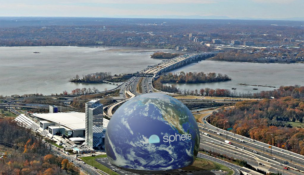Lexington sheds some Confederate monikers
Tim Thornton //September 28, 2020//
Lexington memorializes Confederate Gens. Thomas Jonathan “Stonewall” Jackson and Robert E. Lee so much, Lee’s final resting place in the city was described as “a kind of Confederate Graceland” in a 2009 Washington Post travel story.
Lexington’s image changed some this summer, however. While Virginia Military Institute refused to remove Confederate statues and names from its campus, Carilion Clinic acquired the Stonewall Jackson Memorial Hospital and renamed it Carilion Rockbridge Community Hospital. The Robert E. Lee Hotel, which opened in 1926, became The Gin, and the city-owned Stonewall Jackson Memorial Cemetery, where Jackson’s statue stands over his grave, became Oak Grove Cemetery.
“It was not something that was on my radar,” Vice Mayor Marylin Alexander, the only Black member on Lexington City Council, says of the cemetery.
When letters began to pour in calling for the change as anti-racism protests spread nationwide, Alexander was apprehensive. She knew about the city’s previous fights over Confederate symbols and wasn’t sure this was a brouhaha the city needed. Then someone showed her the cemetery’s 1971 regulations: Only white people were allowed to be buried there.
“It just hit me,” she says. “It started … flooding back what the Confederacy meant to me, what it would mean to my ancestors. I started realizing that when you’re Black and you’re surrounded by that, and you have no choice but to live with it and to accept it, it does something to you.”
City Council voted in August to rename the burying ground Oak Grove Cemetery. Some opponents claim council is changing history, but Jackson’s remains were in the graveyard for more than half a century before the graveyard was named for him.
Jean Clark, director of tourism for Lexington and Rockbridge County, says people still come to the area for Civil War history, but they don’t arrive in busloads like they used to. People visit the Upper James River Water Trail, the Shenandoah Beerwerks Trail and Natural Bridge State Park. Last year, the city removed a dam, freeing another section of the Maury River near Jordan’s Point Park for kayakers and canoers.
“We have a big backyard,” Clark says, “and we have plenty to draw folks in.”
Mayor Frank Friedman and Vice Mayor Alexander say Lexington residents are planning to expand on the city’s Black history and celebrate Juneteenth next year, and others are raising funds for Black entrepreneurs.
“There’s a lot that we’re looking forward to,” Alexander says.
g




















